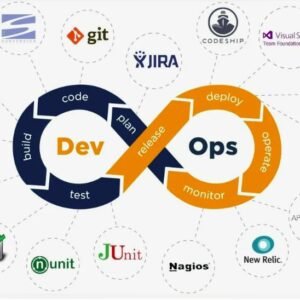In the rapidly evolving world of technology, software development methodologies must adapt to keep pace with emerging technologies and changing market demands. To remain competitive, organizations must continuously refine their approach to software development, ensuring they can efficiently deliver high-quality products that meet the ever-evolving needs of their customers. Here we will explore how software development methodologies adapt to these challenges, focusing on key factors such as agility, collaboration, and innovation.
Importance of Agility in Software Development
Agility has become a crucial aspect of software development methodologies as it allows organizations to respond swiftly to changes in technology and market demands. Agile methodologies, such as Scrum and Kanban, emphasize flexibility, adaptability, and continuous improvement. These approaches enable teams to quickly adjust their processes, priorities, and deliverables as needed.
Embracing Collaboration and Communication

Collaboration and communication are essential components of successful software development methodologies. As emerging technologies and changing market demands require teams to work together across various departments and geographical locations, effective communication and collaboration tools must be in place. This includes the use of project management software, video conferencing, and other digital platforms that facilitate real-time collaboration and information sharing.
Leveraging Innovation in Software Development
Innovation is a driving force behind the success of software development methodologies. As new technologies emerge, organizations must be willing to explore and adopt innovative approaches to software development. This may involve incorporating cutting-edge technologies such as artificial intelligence, machine learning, and blockchain into development processes. Additionally, organizations should encourage their teams to experiment with new methodologies, tools, and techniques that could lead to improved efficiency and effectiveness in software development.
Adapting to Emerging Technologies

Emerging technologies have a significant impact on software development methodologies. For example, the rise of cloud computing has led to the adoption of cloud-native development methodologies, which emphasize the use of microservices, containers, and serverless architectures. Similarly, the increasing prevalence of mobile devices has necessitated the development of mobile-first strategies and responsive design methodologies. To remain competitive, organizations must stay abreast of emerging technologies and adapt their software development methodologies accordingly.
Responding to Changing Market Demands
Market demands are constantly evolving, and software development methodologies must be able to adapt to these changes. For instance, the growing emphasis on user experience (UX) and user interface (UI) design has led to the incorporation of design thinking methodologies into software development processes. Additionally, the rise of the gig economy and remote work has necessitated the adoption of distributed team management strategies and tools.
Role of Continuous Integration and Continuous Deployment (CI/CD)

Continuous Integration and Continuous Deployment (CI/CD) are critical components of modern software development methodologies. These practices enable organizations to streamline their development processes, automate testing and deployment, and rapidly deliver high-quality software updates. By adopting CI/CD, organizations can respond more effectively to changing market demands and emerging technologies, ensuring they remain competitive in an ever-evolving landscape.
Embracing DevOps and Agile Infrastructure
DevOps and Agile Infrastructure are two more essential aspects of modern software development methodologies. These approaches emphasize collaboration between development and operations teams, enabling organizations to streamline their software development and deployment processes. By adopting DevOps and Agile Infrastructure, organizations can improve their ability to adapt to emerging technologies and changing market demands, delivering high-quality software products more efficiently and effectively.
Importance of Data-Driven Decision Making
Data-driven world, organizations must incorporate data-driven decision-making into their software development methodologies. This involves leveraging analytics and business intelligence tools to gain insights into customer behavior, market trends, and software performance. By using data to inform their decision-making processes, organizations can more effectively adapt to emerging technologies and changing market demands, ensuring they remain competitive in the long run.
Final Thoughts
software development methodologies must continually adapt to emerging technologies and changing market demands to remain competitive. By embracing agility, collaboration, innovation, and data-driven decision making, organizations can refine their software development processes and deliver high-quality products that meet the evolving needs of their customers. As technology continues to advance, it is essential for organizations to stay adaptable and responsive, ensuring they can navigate the ever-changing landscape of software development.







